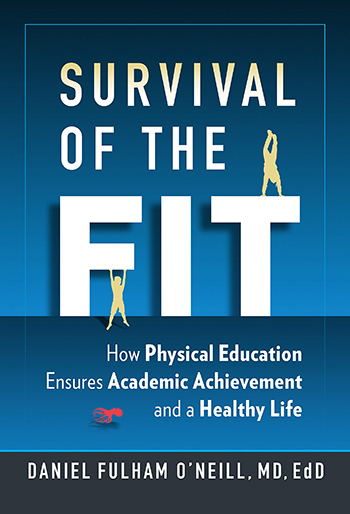Podcast Summary
Malaria's Impact on Children in Kenya: Malaria causes long-term health complications and missed education for children in Kenya, perpetuating a cycle of poverty and limited opportunities
Malaria is a significant health issue, particularly in sub-Saharan Africa where a child under the age of 5 dies from it every 2 minutes. Winterkoth, a malaria researcher, shared her personal experience of contracting malaria multiple times growing up in rural Kenya. Despite surviving, she suffered from long-term complications and missed school due to repeated infections. Malaria is a normal part of growing up for many children in Kenya, and the consequences can be severe, including damage to the immune system, kidneys, and cognitive impairment. The cycle of infection and missed education can perpetuate a cycle of poverty and limited opportunities. Malaria's impact goes beyond the immediate danger of death, and efforts to combat it are crucial for the long-term health and development of affected communities.
World Health Organization Endorses First-Ever Malaria Vaccine: The WHO's endorsement of a 30% effective malaria vaccine brings hope for those at risk and could help break the human-mosquito cycle of transmission
Last month, the World Health Organization endorsed the first-ever malaria vaccine, marking a significant step forward in the fight against this disease. Malaria is caused by a parasite that can live in both humans and mosquitoes, creating a human-mosquito cycle of infection. The new vaccine, while having a 30% efficacy rate, could still make a big difference as it reduces severe malaria cases. Although the efficacy rate may seem low compared to other vaccines, like the Moderna COVID-19 vaccine, the endorsement of this vaccine is a massive step in the right direction. The parasitic nature of malaria, which can be transmitted between humans and mosquitoes, makes it challenging to eradicate completely. However, the availability of a licensed vaccine, even with a 30% efficacy rate, brings hope for those at risk and could help break the cycle of transmission.
A new malaria vaccine targets children with a 4-dose regimen: The new malaria vaccine, despite its challenges, holds promise in preventing the spread of the disease, especially in children through a 4-dose regimen. WHO's pilot program showed families are motivated to ensure their kids receive all doses, and existing public health programs can facilitate distribution.
The new malaria vaccine, despite its complexities and challenges, holds great promise in breaking the parasite's cycle and preventing the spread of the disease. The vaccine specifically targets children with a 4-dose regimen, given at 5 months, 6 months, 7 months, and 18 months. However, ensuring that all children receive all doses is a concern, as the vaccine's efficacy drops if not administered fully. Two years ago, WHO initiated a pilot program in Africa to test the feasibility of distributing the vaccine, and the results showed that families were motivated to bring their kids in for all four doses. While the vaccine's 30% efficacy rate raises questions, it is effective during winter seasons. The public health and immunization programs already in place in many countries can facilitate distribution, making the vaccine more accessible to as many children as possible. Overall, the new malaria vaccine represents a significant step forward in the fight against this complex and tricky disease.
New malaria vaccine: A promising addition to existing prevention tools: The new malaria vaccine, with a 30% efficacy rate, significantly reduces severe malaria risk in children when used with preventative drugs and insecticide-treated bed nets
The new malaria vaccine, while not a perfect solution, is an important addition to existing prevention tools. The vaccine, which only protects children, has a 30% efficacy rate. However, when combined with other methods like insecticide-treated bed nets and preventative antimalarial drugs, the vaccine's impact can be significantly increased. For instance, one study showed that the risk of severe malaria in children could be reduced by 70% when the vaccine is used in conjunction with preventative drugs. It's crucial to remember that adults can also contract malaria and transmit it to children, making the use of insecticide-treated bed nets essential for reducing contact between infected mosquitoes and families. The vaccine, along with existing prevention tools, offers a promising step forward in the fight against malaria. This approach is reminiscent of the ongoing COVID-19 pandemic response, where vaccines play a vital role but must be used in conjunction with other measures like masks, social distancing, and testing to effectively combat the virus.
Continuing Prevention Tools for Disease Control: Despite vaccines, masks and physical distancing remain crucial prevention tools. Increase accessibility and distribution in needed regions.
Even with the availability of vaccines, it's essential to continue using other prevention tools, such as masks and maintaining physical distance, when necessary. This principle applies not only to the health concerns of the current COVID-19 pandemic but also to other diseases like malaria. The discussion emphasized the importance of increasing accessibility and distribution of these tools, particularly in regions where they are needed most. Winter's personal experiences and insights provided valuable context to this topic. Overall, the conversation underscored the importance of a multi-faceted approach to disease prevention and control. This episode of Shortwave from NPR was produced by Britt Hanson, edited by Sara Saracen, and fact-checked by Margaret Serino. Listen to The Bid, BlackRock's podcast, for market insights and discussions on challenges facing investors.





